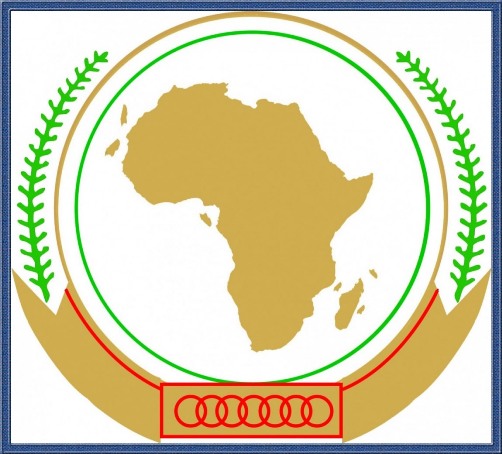AU’s role in achieving Africa’s economic integration
 It is not in dispute that the African Union (AU), since its formation in 2002, to replace the Organisation of African Unity (OAU), has been spearheading the continent’s socio-economic development, peace and security, and integration.
It is not in dispute that the African Union (AU), since its formation in 2002, to replace the Organisation of African Unity (OAU), has been spearheading the continent’s socio-economic development, peace and security, and integration.
This year’s AU Day Celebration on May 25, is on under the theme “Winning the fight against corruption: a sustainable path to Africa’s transformation”, and clearly shows how serious the issue of corruption is – a bane of the continent’s progress.
As we mark the 55th anniversary of the OAU and the 16th anniversary of the AU, it is important to reflect on the main objectives of the OAU – to rid the continent of the remaining vestiges of colonisation and apartheid, to promote unity and solidarity among African States.
It was also to coordinate and intensify cooperation for development, to safeguard the sovereignty and territorial integrity of member states and to promote international cooperation within the framework of the United Nations.
The AU’s mission is to create an integrated, prosperous and peaceful Africa, driven by its own citizens and representing a dynamic force in the global arena.
It seeks to increase development, combat poverty and corruption, and end Africa’s many conflicts.
On an important occasion like the AU Day, it is necessary that we pay tribute to the founding fathers of the OAU – Osagyefo Dr. Kwame Nkrumah of Ghana, Modibo Keita of Mali, Egypt’s Gamal Abdul Nasser, Sekou Touré of Guinea, Julius Nyerere, Tanzania, Ben Bella of Algeria, Emperor Haile Selasse of Ethiopia, William Tubman, Liberia, Abubakar Tafawa Balewa and Nnamdi Azikiwe of Nigeria and Kenya’s Jomo Kenyatta.
In its efforts to speed up socio-economic transformation of the continent, the AU has adopted a number of conventions, establishing norms at the continental level, to supplement those that were already in force when it was created.
These include the African Union Convention on Preventing and Combating Corruption (2003), the African Charter on Democracy, Elections and Governance, (2007), New Partnership for Africa’s Development (NEPAD) and its associated Declaration on Democracy, Political, Economic and Corporate Governance.
As part of a concerted effort to shape the future through big picture thinking for the 21st century, Africa’s political leaders in 2013 launched the AU Agenda 2063.
Dubbed “The Africa we want”, is “a shared strategic framework for inclusive growth and sustainable development” it emphasises the importance of rekindling the passion for pan-Africanism, sense of unity, self-reliance, integration and solidarity that were the highlights of the triumphs of the 20th century.
The Agenda calls for an education and skills revolution to meet the human resource needs to drive socio-economic development
To give meaning to the AU’s Agenda 2063, 44 Africa leaders, including Ghana’s President Nana Addo Dankwa Akufo-Addo, earlier this year, signed the African Continental Free Trade Area (AfCFTA) in Kigali, Rwanda.
Ten of the Union’s 55 member-states including Nigeria did not sign the agreement. The signing of the AfCFTA was a step in the right direction, the way forward to attaining the AU’s Agenda 2063.
It is hoped that the AfCFTA has the potential to bring over 1.2 billion people together in the same market.
At the Kigali summit, Ghana was also among 27 AU member-states which signalled a new commitment to the free movement of persons.
President Akufo-Addo said it was time to scale up the momentum of the continent’s integration agenda to give boost to Africa’s common market process that presented immense opportunities to bring prosperity to the continent.
Africa over the years has been struggling with numerous conflicts and to help address the situation, the AU has taken up pivotal roles in peacekeeping in South Sudan, Somalia and other parts of the continent through the regional bodies.
Another challenge facing the AU is the issue of religious extremism and terrorism.
Globally, tackling terrorism and religious extremism would require the collective effort of everybody.
The AU in its bid to deal with terrorism on the continent established the African Centre for the Study and Research on Terrorism (ACSRT) in Algiers, in 2004 – to centralise information and research on terrorism and to develop counter-terrorism capacity building programmes.
“No single nation, institution, or organization can defeat terrorism in Africa or anywhere else,” Antonio Guterres, UN Secretary-General, stated at a special meeting of the AU Peace and Security Council, in Addis Ababa, Ethiopia.
Another serious threat to African unity and integration is neo-colonialism, the situation where independent African nations are still tied to the aprons of their former colonial masters, dictating their economic policies and their voting patterns at meetings at the regional, continental and the UN levels.
The truth is that neo-colonialism is the continuation of colonial policies under the guise of achieving freedom.
According to Osagyefo Dr Kwame Nkrumah, the aim of neo-colonialism is economic domination at the satisfaction of a few.
It would be recalled that former President John Dramani Mahama in a message to mark the 54th AU Day called for the tearing down of the relics of neo-colonialism.
Indeed, if African countries are to be truly independent, the relics of neo-colonialism must totally be destroyed.
Despite the socio-economic gains attained by the AU/OAU over the past years, a lot more need to be done.
The AU is on a mission to transform the continent by 2063, and this agenda must be championed by all member-states, especially, Ghana, the shining star of Africa.
By Iddi Z. Yire
Source: GNA
